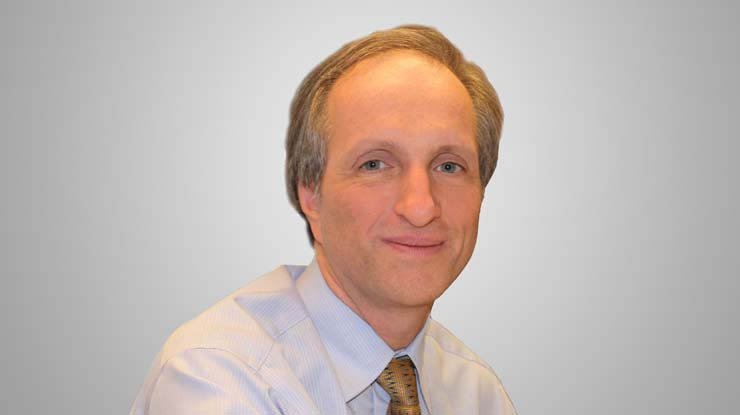Dr. Hertzel Gerstein is a lead investigator in several global trials and studies including up to 12000 participants such as HOPE, MICROHOPE, ACCORD, TIDE, RECREATE, DREAM, EPiDREAM, ORIGIN, and REWIND.
Hertzel C. Gerstein
M.D., MSc, FRCPC
Professor, Departments of Medicine &Clinical Epidemiology and Biostatistics
Director, Division of Endocrinology & Metabolism
Head, Service of Endocrinology &Metabolism
Deputy Director, Population Health Research Institute
McMaster University &Hamilton Health Sciences
From the array of positions that McMaster University’s Dr. Hertzel C. Gerstein has taken on – endocrinologist, professor, service head – one of the most extraordinary is that of a passionate clinical investigator. After more than 20 years of experience and over 200 publications, he has become a prominent figure in the field of diabetes research.
In Ontario, an alarming one in nine people suffer from diabetes, a chronic disease that is associated with many other serious problems. After all of these years, there are two things that keep Dr. Gerstein motivated to continually be involved in diabetes research: “On a human level, it is gratifying. The research I’m involved in assesses ways of reducing misery and improving the lives of those with diabetes. On an intellectual level, it is fascinating. After all of these years, we still don’t understand why people with diabetes have a higher risk for all of these problems.”
If there’s one thing you should know about Dr. Gerstein, it’s that he takes what he does very seriously. Although Dr. Gerstein’s world seems to revolve mainly around his research, he also enjoys walking, musical theatre, and songwriting. Anna Nguyen, a journalist with the CCCT had the pleasure of sitting down with him for a chat, as he was kind enough to fit us into his busy schedule.
Anna: In the past 20 years, what medical changes have you seen regarding diabetes management from the clinical trials you’ve conducted?
Dr. Gerstein: There are a number of things that we have helped to change. First, there’s been a very strong recognition of the importance of diabetes and nondiabetic dysglycemia as a serious risk factors for cardiovascular and other adverse health outcomes. Second, it is now clear that diabetes can be prevented and its course radically changed. Third, there is growing recognition that much of the problem of diabetes may be related to abnormal ectopic fat deposition. Fourth, the risk of cardiovascular outcomes can clearly be reduced by a variety of therapies including ACE inhibitors, statins, and blood pressure lowering. Fifth, targeting blood pressure or glucose levels that are normal for 20-year-olds does not appear to confer clear benefits in the short term compared to targeting levels that are typically achieved with today’s therapies. Conversely, targeting perfectly normal glucose levels does confer both retinal and renal benefits even in people with advanced diabetes. Sixth, albuminuria has been clearly recognized as an important risk factor for serious outcomes. These are just some of the insights that have contributed to what we know about diabetes and its therapy.
Anna: You’ve been the core and leader of some of the largest diabetes-related clinical trials and the focus of your trials was your patients, but you’ve preferred to call them “active participants” instead, why?
Dr. Gerstein: First off, they are not patients. I say this because they may have been patients before and that’s what may have identified them as being eligible to be in a study, but they’re actually active participants. This is because they’re interested in helping to find the answer to a question; they are interested in working together with the researchers to find the answers and they understand what’s happening to them. The whole process of “informed consent” is meant to ensure this. Most importantly, these participants are treated with the right type of respect for their contributions and are the key to the research enterprise. Without them we don’t have research.
Anna: Were participants more afraid that they could further compromise their health or did they feel optimistic about the trial, in that it would prevent them from developing diabetes?
Dr. Gerstein: People who participate in trials are always optimistic about them. They also understand that it will increase knowledge.
Furthermore, those participating in trials don’t expect that there’s going to be a magical cure for them. With that being said, they all want to see how research happens; they trust the person that is presenting the trial to them and they want to see how it can contribute to the world. Whether the disease is prevented or not (in them) is a secondary thing – because we don’t know what works – we wouldn’t do the trial if we did.
Anna: Many patients fear enrolling in clinical trials, why do you think that this prevails despite all the benefits and medical advancements clinical studies have provided?
Dr. Gerstein: I don’t agree that patients fear clinical trials; clearly the ones who do enroll in clinical trials don’t fear them. The ones who don’t want to enroll usually have a variety of reasons. One may be fear but others can include time or other commitments.
I believe it’s a choice. Study after study shows that people in clinical trials, regardless of what group they’re randomized to, have better outcomes than those that are not. People in clinical trials do very well, regardless of what type of clinical trial they are in.
Look at it this way, why don’t people go on vacation to Florida? Instead, they choose to go to San Diego. Is this because they’re afraid to go to Florida? No, because they’re choosing to do something else with their time. They’re too busy or have other things. Fear is not the main reason.
Anna: Considering what we’ve discussed, is it safe to participate in clinical trials?
Dr. Gerstein: Yes, it’s safe to participate in clinical trials that are well done. These trials have lots of safeguards built in for patients. Certainly, there are unknowns. However, there are also unknowns when you start any type of drug or treatment, even those that are commonly used.
People may not be aware that the safety and progress of large clinical trials are monitored by independent physicians on a safety board who regularly review the safety and benefits of the therapies in the trial. Indeed, in some instances, this review makes it safer to take drugs within clinical trials than to take them outside of clinical trials.
Anna: Is there anything else you want to say to people who are contemplating or are skeptical about enrolling in clinical trials?
Dr. Gerstein: Like everything in life, you need to make sure you feel good about it. Make sure your questions are answered and don’t let yourself get talked into anything. It’s not good for you and it’s not good for an investigator.



